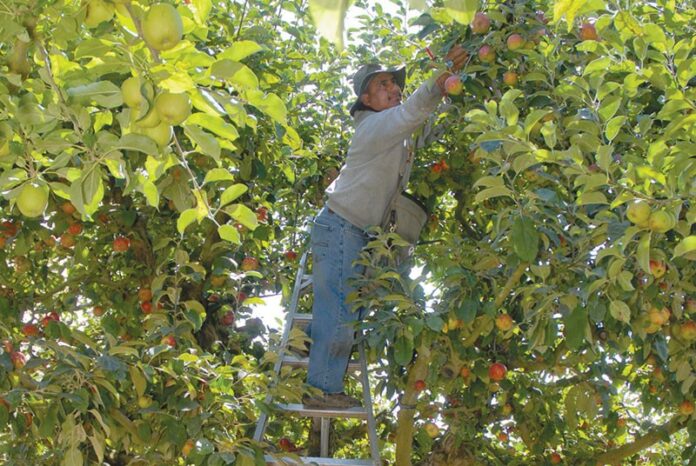It’s barely summer and already Gravenstein apples hang heavy from trees in West County orchards. The apples are early to ripen, and local fans of the fruit can’t wait, as evidenced by last week’s panel discussion of apple and cider experts.
Local historian Gaye LeBaron and a who’s who of Sonoma County’s apple and cider industries gathered at Occidental’s Union Hotel ballroom June 20 to talk about the future of local cider for a dinner and discussion called “Origin Stories and New Horizons.” Apple farmers and cider makers talked about growing a new industry while striving to conform to high principles of flavor and farming such as those espoused by Slow Food, an organization dedicated to restoring the culture of “good, clean and fair” eating in a heavily industrialized world. Slow Food sponsored the event.
The mood was optimistic, as the number of cideries has doubled in the past three years, but apple grower Stan Devoto said growers need to be paid more for their apples to survive. Ellen Cavalli, co-owner of Tilted Shed Ciderworks in Sebastopol, which harvests 65 varieties of locally grown organic apples, said she’d be happy to pay more—if the public is willing to pay $30 or $40 for a bottle for cider.
Hard cider is of British origin, first noted by the Romans who arrived in Kent in 55 B.C. and considered it safer to drink than water. Many apple varieties, often high in tannin and inedible, may be used in the creation of craft ciders. The Gravenstein provides a great base with its distinct sweet-tart flavor.
Saving the Gravenstein became the mission of Paula Shatkin when she and her husband retired to the West County from Los Angeles, and were shocked to see all the “murdered apple orchards everywhere.” So she did something about it.
The first step was to get the apple approved under Slow Food’s international Presidia program, designed to safeguard foods embedded in rural cultures. Shatkin took photographs to document the places the word “Gravenstein” appeared on labels and street signs, demonstrating its place in Sebastopol culture. That was 2003. The apple project, called the Apple Core, is one of only five Presidia in the United States.
Restoring biodiversity is the mission that drives Shatkin’s passion and hard work promoting the apple.
If all this seems a little too niche in a world beset by towering struggles, it may be helpful to remember—as apple grower Ted Richardson, who grows 60 varieties on his two-acre ranch in Occidenta, reminded us at the dinner—that apples are one of the most healthful foods around.But they are also number one on the Environmental Working Group’s “dirty dozen” fruits containing the most pesticides. “So there is good reason for families to search out organic apples.”
Still, says Apple Core member Michael Stevenson, “one of the best ways to promote apples is to support cider growth.”
It all works to help restore local agriculture. As LeBaron pointed out in her introductory remarks, “Sonoma County used to be one of the top 10 agricultural counties in the nation.”
Why not again?









